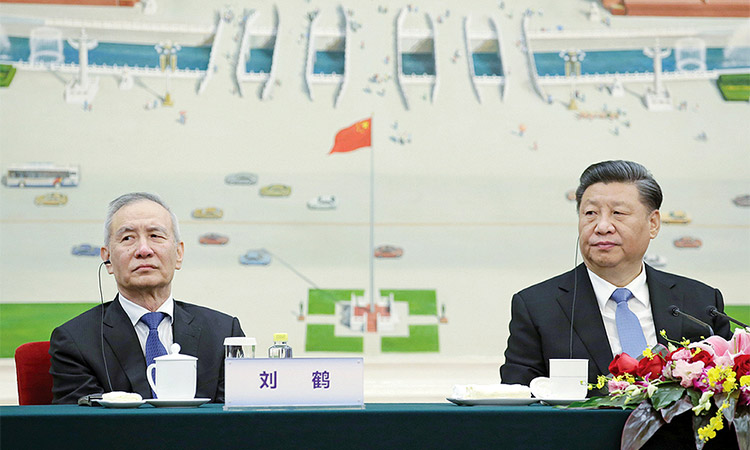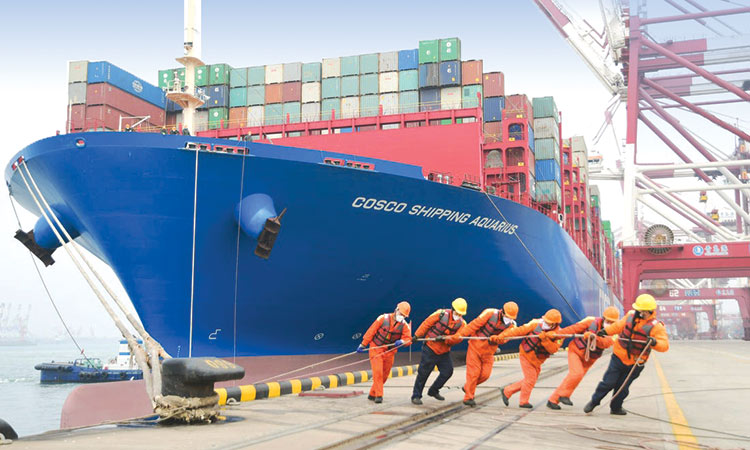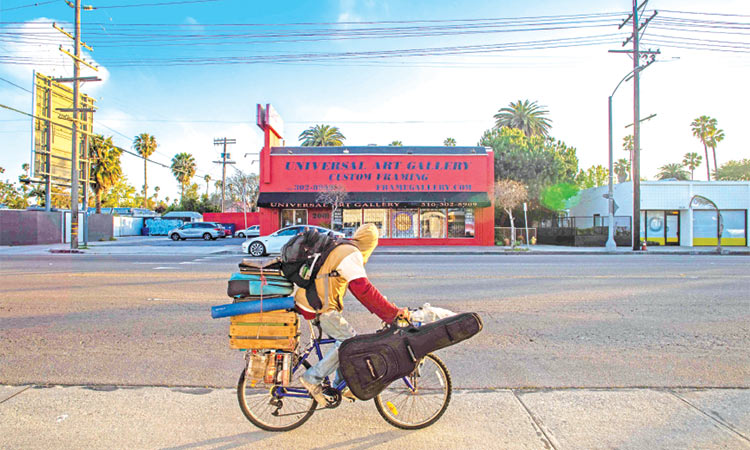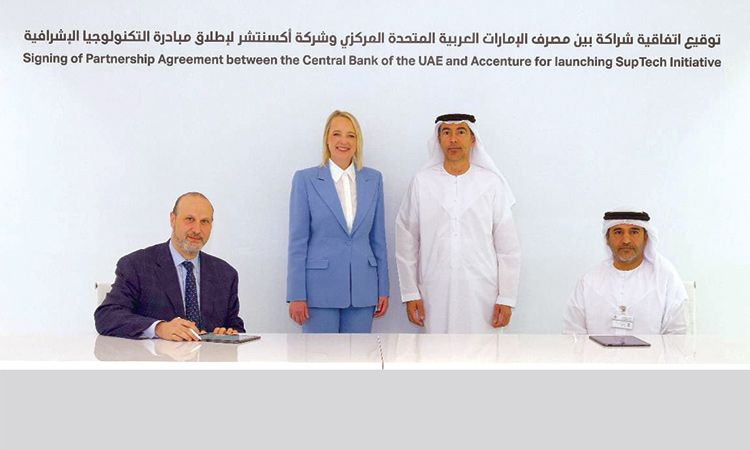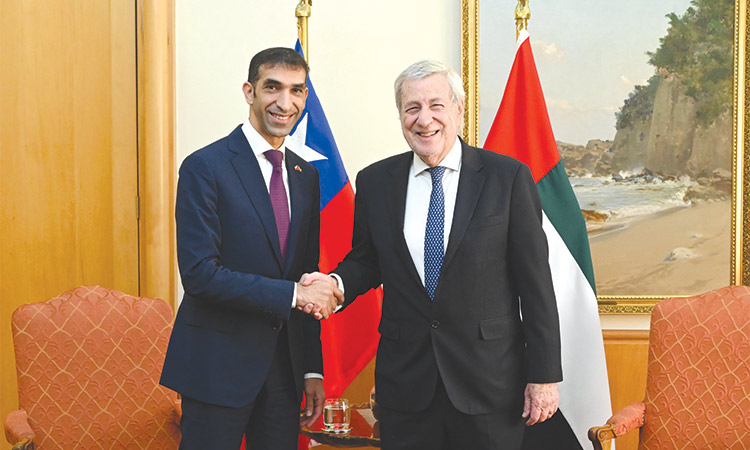China and US trade war to ease but conflict will persist: Official
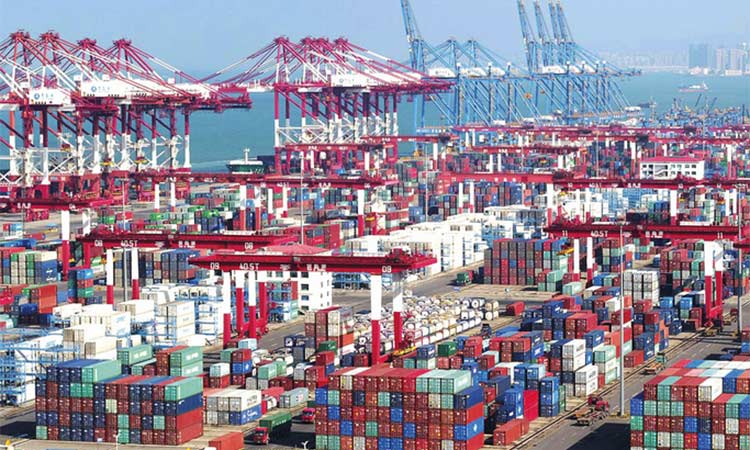
Containers and trucks at a terminal of the Qingdao port in Shandong province, China. Reuters
“Look at the next development, there could be compromises in the trade war at a certain stage, and we have seen signs of compromising,” Lou, now an official with a body that advises China’s parliament, told an economic forum in Beijing.
Officials from both countries on Thursday said China and the United States had agreed to roll back tariffs already put in place on each others’ goods if a “phase one” deal was concluded, but the idea has been met with opposition from some quarters of the administration US President Donald Trump.
Trump himself, in comments that hit stock prices and the dollar, said on Friday he had not agreed to a tariff rollback.
Washington has adopted a strategy to contain China’s economic rise by preventing the country from climbing up the global value chain, Lou said.
“Containment and counter-containment are inevitable and that will be a long-term issue,” he said.
But Lou also said it would be difficult for the United States to decouple from China, given the potential disruption to global supply chains and the impact on businesses.
The US tariffs on Chinese exports will not fundamentally resolve its trade deficit, which is caused by the high US government debt ratio and a low household savings rate, he said. China should open up its economy wider to foreign investors, but it should not rush to relax its capital controls, Lou said. President Donald Trump on Friday dismissed a Chinese official’s assertion that his administration has agreed to roll back some of the higher tariffs it’s imposed on Chinese goods.
The Chinese official said Thursday that the two sides had agreed to a phased cancellation of their tariff hikes as part of an emerging agreement.
Trump’s pushback suggested that negotiations haven’t progressed as far as hoped as the world’s two biggest economies struggle to negotiate an end to their trade war, which has hurt both economies.
“They’d like to have a rollback,” Trump told reporters at the White House, referring to the Chinese. “I haven’t agreed to anything.” The two sides have been working on an initial “Phase 1” deal that was announced Oct. 12 but that still isn’t final.
Financial markets in the US and globally rallied on Thursday at the prospect of an agreement to wind down the US-China trade fight, but then stumbled Friday on Trump’s comments before eking out small gains. The Dow Jones Industrial Average finished up 6.44 points, or less than 0.1%, after shedding as many as 96 points earlier in the day.
Trump repeated his claims that China wants a deal more than the United States and that the United States benefits from extra tariff revenue. The president says the tariffs are paid by China, but studies conducted since the duties were imposed find that Americans businesses and consumers are paying them.
“Frankly, they want to make a deal a lot more than I do,” Trump said. “I’m very happy right now. We’re taking in billions of dollars.” A private sector source with knowledge of the talks said Thursday that the United States had agreed to suspend the duties Trump threatened to impose December 15th on about $160 billion of Chinese imports as part of the agreement. But there is dissension in the White House about whether and by how much to roll back 15% duties on another $112 billion of goods imposed Sept. 1.
White House economic adviser Larry Kudlow also told Bloomberg News Thursday that if a deal were reached, it would include reduced tariffs.
“The White House never speaks with one voice,” Mary Lovely, a trade economist at the Peterson Institute for International Economics, said Thursday.
Despite Trump’s cavalier comments, analysts say the administration has plenty of incentives to reach a deal soon. Trump said last month that the “Phase 1” pact would include the purchase of tens of billions of dollars of US farm products by China, which would benefit farm states, many of which supported Trump in 2016.
The tariffs imposed in September covered clothes, toys, and shoes, raising prices for many widely used consumer goods.
And the Dec. 15 tariffs would mostly hit popular consumer products such as smart phones and laptops. Not only would that also raise consumer costs, but those tariffs would affect many products designed by US companies, for which China gets relatively little of the economic benefit.
“The December tariff round would largely hit products designed and marketed by multinational firms, mostly with components from the United States and its allies, and assembled in non-Chinese-owned factories,” Lovely wrote on the Peterson Institute’s website. The trade war stems from the Trump administration’s complaints that China is seeking to unfairly boost its high-tech industries by stealing US technology or forcing American companies to share it as a condition of doing business there. Most business groups and China trade experts agree that China has violated trade rules and have largely supported the administration’s tougher line.
Agenices

